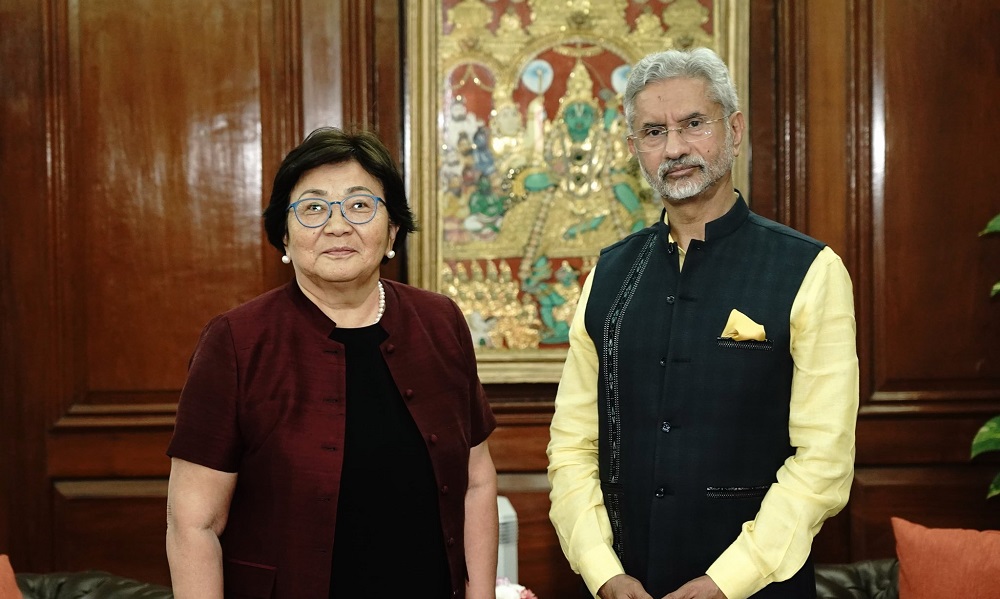Latest News
Taliban deliberately target journalists: Watchdog

The Human Rights Watch (HRW) has accused the Taliban of “deliberately” targeting journalists and other media workers, including women in Afghanistan.
The watchdog said in a statement that threats and attacks against journalists have increased sharply since the start of the negotiations between the Afghan government and the Taliban in Doha, the capital of Qatar.
According to the statement, such attacks have increased “concerns about preserving freedom of expression and the media in any peace settlement.”
The Watchdog has found that the Taliban commanders and fighters have engaged in a pattern of threats, intimidation, and violence against members of the media in areas where the Taliban have significant influence, as well as in Kabul.
“Those making the threats often have an intimate knowledge of a journalist’s work, family, and movements and use this information to either compel them to self-censor, leave their work altogether, or face violent consequences.”
“Provincial and district-level Taliban commanders and fighters also make oral and written threats against journalists beyond the areas they control. Journalists say that the widespread nature of the threats has meant that no media workers feel safe.”
“A wave of threats and killings has sent a chilling message to the Afghan media at a precarious moment as Afghans on all sides get set to negotiate free speech protections in a future Afghanistan,” said Patricia Gossman, associate Asia director.
“By silencing critics through threats and violence, the Taliban have undermined hopes for preserving an open society in Afghanistan,” she said.
Human Rights Watch interviewed 46 members of the Afghan media between November 2020 and March 2021, seeking information on the conditions under which they work, including threats of physical harm.
The HRW stated that those interviewed included 42 journalists in Badghis, Ghazni, Ghor, Helmand, Kabul, Kandahar, Khost, Wardak, and Zabul provinces and four who had left Afghanistan due to threats.
The Watchdog noted that in a number of cases that Human Rights Watch documented, Taliban forces detained journalists for a few hours or overnight.
“In several cases they or their colleagues were able to contact senior Taliban officials to intercede with provincial and district-level commanders to secure their release, indicating that local commanders are able to take decisions to target journalists on their own without approval from senior Taliban military or political officials.”
The statement said that the Taliban officials at their political office in Doha, Qatar, have denied that their forces threaten the media and say that they require only that journalists respect Islamic values.
But Taliban commanders throughout Afghanistan have threatened journalists specifically for their reporting, the HRW said, adding that the Taliban commanders have considerable autonomy to carry out punishments, including targeted killings.
According to the Watchdog, women journalists, especially those appearing on television and radio, face particular threats.
The recent wave of violent attacks has driven several prominent women journalists to give up their profession or leave Afghanistan altogether.
“Female reporters may be targeted not only for issues they cover but also for challenging perceived social norms prohibiting women from being in a public role and working outside the home.”
A journalist covering the fighting in Helmand province said that one of his sources told him the Taliban were looking for him and he should lie low. “The majority of Afghan journalists feel intimidated and threatened,” he said. “All the journalists are scared because everyone feels like they could be next.”
The watchdog has called on the Taliban leadership to “immediately cease intimidation, threats, and attacks against journalists and other media workers.”
“They should urgently provide clear, public directives to all Taliban members to end all forms of violence against journalists and other media workers, and intimidation, harassment, and punishment of Afghans who have criticized Taliban policies. The Taliban leadership should also explicitly reject violence against women in the media,” the HRW said.
Gossman stated: “It’s not enough for Taliban officials in Doha to issue blanket denials that they’re targeting journalists when Taliban forces on the ground continue to intimidate, harass, and attack reporters for doing their jobs.”
“Countries supporting the peace process should press for firm commitments from all parties to protect journalists, including women, and uphold the right to free expression in Afghanistan,” she said.
“Since the beginning of the spike in targeted killings in early November [2020], supporters of the group [Taliban] have welcomed the killings of journalists on social media, calling these killings in many cases a religious duty. Taliban supporters accuse journalists of being agents of Western countries, and corrupted by Western values, thereby legitimizing any violence against journalists and the media as not only being permissible but a key part of their war,” said the Afghan Journalists Security Committee (AJSC) quoted by the HRW.
According to the HRW findings, the Taliban commanders and fighters have long targeted the media, accusing them of being aligned with the Afghan government or international military forces.
“If journalists report unfavorably about Taliban actions or military operations, the Taliban often accuse them of being spies,” the watchdog said.
The Taliban, so far, has not commented about this report. The group, however, constantly denied its involvement in Targeting civil activists, journalists, and media workers.
Latest News
IEA urges World Bank to resume work on 7,000 incomplete projects

Officials at the Ministry of Rural Rehabilitation and Development (MRRD) say 7,000 incomplete projects of the World Bank are at risk of destruction in Afghanistan. They call on the World Bank to resume the work of these projects.
According to them, discussions have been held with the World Bank about these projects, but there has been no result yet.
“7,000 incomplete projects are being destroyed, and if the work is not started, these projects will be destroyed. We ask the World Bank to resume the work of these projects as soon as possible,” said Noorul Hadi Adel, the spokesperson of MRRD.
Meanwhile, members of the private sector also ask international institutions to resume their work in Afghanistan.
According to the officials of this sector, with the start of these projects, job opportunities will be provided for thousands of people in the country.
“These projects create employment for our people and the country will grow a lot,” said Mirwais Hajizadeh, a member of the private sector.
However, economic experts stated if the work of these projects does not start soon, they will be destroyed and the investments made in them will be wasted.
Latest News
Ten people killed by floods in Helmand

Ten people have been killed and six others injured by floods in Helmand province in the past week, local officials said on Friday.
According to officials, seven of those were members of the same family, and they were killed in Kajaki district last night.
“Most of the people moved from vulnerable areas to high lands and mountains, and thanks Allah the number of casualties is low,” Sher Mohammad Vahdat, the head of information of the Directorate of Information and Culture in Helmand, said adding rescue teams and security forces have been dispatched to help people.
It is said that the telecommunication system has also been disrupted due to the effect of floods in Kajaki district. Floods have also destroyed thousands of acres of agricultural land.
Latest News
UN envoy meets Indian foreign minister to discuss Afghanistan

Roza Otunbayeva, the UN Secretary General’s Special Representative for Afghanistan, met with the Indian Foreign Minister Subrahmanyam Jaishankar in New Delhi and discussed issues related to Afghanistan, it was announced on Thursday.
During the meeting, Otunbayeva thanked India for “its critical humanitarian support and longstanding friendship for the Afghan people” and discussed the importance of regional and international cooperation to address prevailing challenges in Afghanistan, UNAMA said on X.
Jaishankar also said on X that the sides exchanged views on the current situation in Afghanistan.
“Underlined that India has provided wheat, medicines, pesticides and school supplies. Appreciate the role of UN agencies as partners in these endeavors,” he said.
-

 Sport4 days ago
Sport4 days agoACL fever grows as fixtures finalized
-

 World5 days ago
World5 days agoUS will not take part in any Israeli retaliatory action against Iran
-

 Latest News4 days ago
Latest News4 days agoOver 50 people dead in traffic accidents over Eid
-

 Latest News4 days ago
Latest News4 days agoUS identifies Kabul airport suicide bomber
-

 Business4 days ago
Business4 days agoAfghanistan-Kazakhstan chamber of commerce opens in Herat
-

 Latest News5 days ago
Latest News5 days agoGood rains enable DABS to increase power production in Kabul
-

 World4 days ago
World4 days agoIsraeli military vows response to Iran attack as calls for restraint mount
-

 Sport2 days ago
Sport2 days agoATN secures exclusive rights to broadcast Paris 2024 Olympics
























